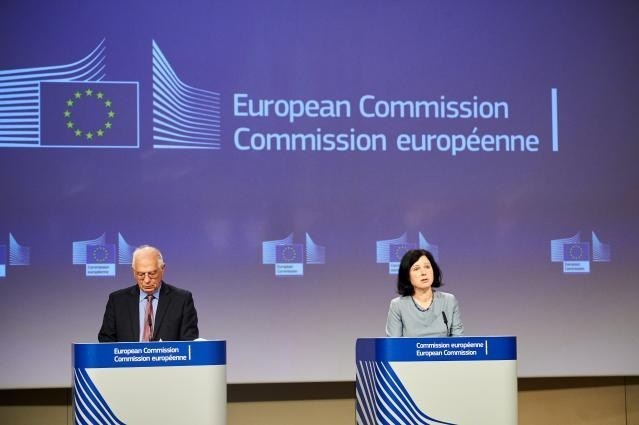The European Commission presented proposals to strengthen the code of good practice against misinformation on Wednesday, signed by platforms that include Facebook and Google.
The proposals demand more transparency on algorithms and more fact-checking.
The code of good practice is a self-regulatory tool that’s intended to become more binding with the future Digital Services Act (DSA), which the commission hopes will be adopted next year.
The DSA would oblige platforms to put in place measures to combat misinformation, and noncompliance with the code of practice would result in heavy fines.
The code, first launched in 2018, has been signed by Google, Facebook, Twitter, Microsoft, Mozilla and TikTok, as well as players in the advertising sector.
Its current version “has shown its limits,” said the commission’s vice-president in charge of transparency, Vera Jourová, explaining that the pandemic has led to the proliferation of rumours and false information online.
“The threats posed by online disinformation are evolving rapidly and we need to step up our action,” said Jourová.
Jourová met with representatives from various social media platforms earlier in the year to share concerns about misinformation regarding coronavirus vaccines.
Internal Market Commissioner Thierry Breton stressed that “misinformation cannot remain a source of revenue” in his call for “stronger commitments from digital platforms, the whole advertising ecosystem and networks of fact-checkers.”
The Commission wants to encourage more digital and advertising players to sign onto the code, and to encourage platforms to cooperate in the fight against false or misleading advertising.
Unlike illegal content, the fight against misinformation does not involve mandatory removal. But the European Commission is calling for more transparency on the algorithms used by the internet giants to promote content and wants users to have tools to easily report false or misleading information.
The Commission says it wants to encourage the development of fact-checking and better access for researchers to platform data.
It also asks platforms to publish regular reports with clear indicators to assess the effectiveness of the measures put in place.
It proposes the creation of a “task force” composed of the signatories of the code, representatives of the EU diplomatic service and the European audiovisual regulators (ERGA).
The proposals will be discussed with the platforms, which will have to submit a first version of the revised code in the fall in order for it to be operational by the beginning of 2022.
For Marisa Jimenez Martin, Facebook's director for European affairs, the code “works.”
“It just needs to be strengthened, and we will work on that with other stakeholders in the coming months,” Martin told reporters.
The Commission also plans to present a draft regulation on political advertising and the targeting of users based on their personal data by the end of the year.
The Brussels Times

